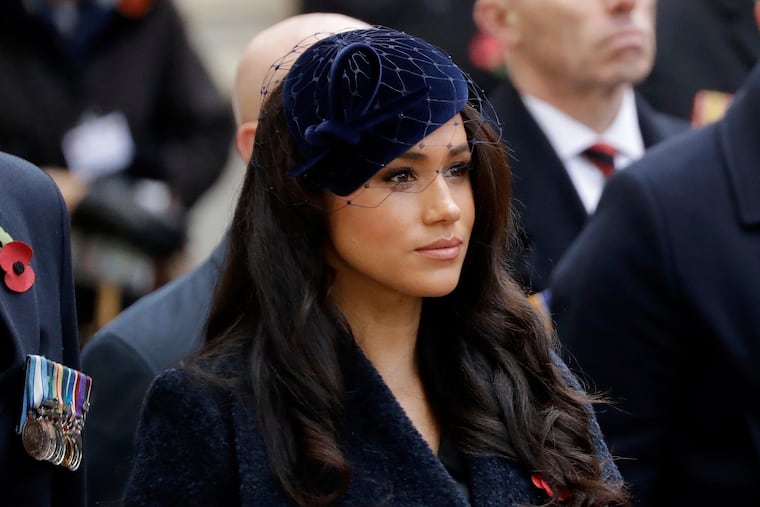Like Meghan Markle, too many Black women suffer in silence | Opinion
Mental health support is seen as a privilege that not everyone is entitled to. But it shouldn’t be that way.

I remember seeing a clip in the beginning of 2020, when Meghan Markle was being interviewed in her fourth trimester, the postpartum. The interviewer asked her how she was doing, and she responded “not many people have asked if I’m OK.”
As a birth doula and mental health professional, who has supported many Black women before, during, and post-birth, I completely felt and understood Markle’s heartbreaking honesty in that moment, at being overwhelmed as a new mother. I remember wondering who Markle had in her life to show up for her when she needed it most.
Fast forward a year later, in a two-hour bombshell interview with Oprah Winfrey on Sunday night, Markle not only answered my question, but also detailed that while living with the royal family, she had dark days, felt alone, and was suffering silently. She admitted, to the whole world, that she had suicidal thoughts and that the people who were closest in proximity to her made her feel ashamed that she needed to seek out professional help. Even her husband, Prince Harry, said in that interview that he couldn’t discuss Markle’s mental health issues with his family, because “this was not a conversation to be held.”
Suffering in silence is all too common for many Black women who have had their own mental health struggles. Too often, Black women struggle with expectations and responsibilities that lead them to neglect their own health and well-being. And like Markle, they become afraid to voice the help that they need, because healing is seen as a privilege that not everyone is entitled to. But it shouldn’t be that way.
Markle’s struggles with her mental health are not uncommon to Black women. The American Psychological Association reports that only about a quarter of Black women seek mental health treatment when in crisis, even though Black women are 20% more likely to report serious psychological distress as adults.
Of course, it has to be acknowledged that Markle’s access to resources puts her in a privileged position above many Black women when it comes to accessing quality mental health services. Due to life circumstances, socioeconomic factors — such as limited resources, being underinsured, few available facilities — many Black women face limited access to quality treatment. The fact that even someone with her privilege was unable to get the help she needed is disturbing.
Additionally, while Markle passes as a Black woman, it’s important to remember that she is biracial. (Her father is white.) Research shows that the closer one is to being affected by racism and skin tone bias correlates to the level of health care that is provided to them. In the Black community, the research suggests, people with darker skin tones have higher levels of depressive disorders as they receive an increased likelihood of trauma exposure with less access to mental health services.
While I applaud Markle’s bravery for stepping out of the shadows that Black women and our mental health are too often forced into, we still have a long way to go in looking at mental health through an intersectional lens. We must understand and recognize the multiple stigmatized identities and differences that impact Black women when it comes to their mental health as well as their access to mental health treatment. Doing so could begin to untangle the social differences and power hierarchies that shape Black women’s lives, and that would be transformative for women like Meghan Markle and so many others.
Iresha Picot is a Licensed Behavior Specialist and Therapist, doula, and community activist. A Philly transplant by way of Virginia, Iresha is the coeditor of the book, “The Color of Hope: People of Color Mental Health Narratives” and has written articles in the Research in the Teaching of English, Elephant Journal, Aunt Chloe’s Journal, Specter Magazine, For Harriet and has been featured in NPR, Bicycle Magazine, and PBS American Portraits.